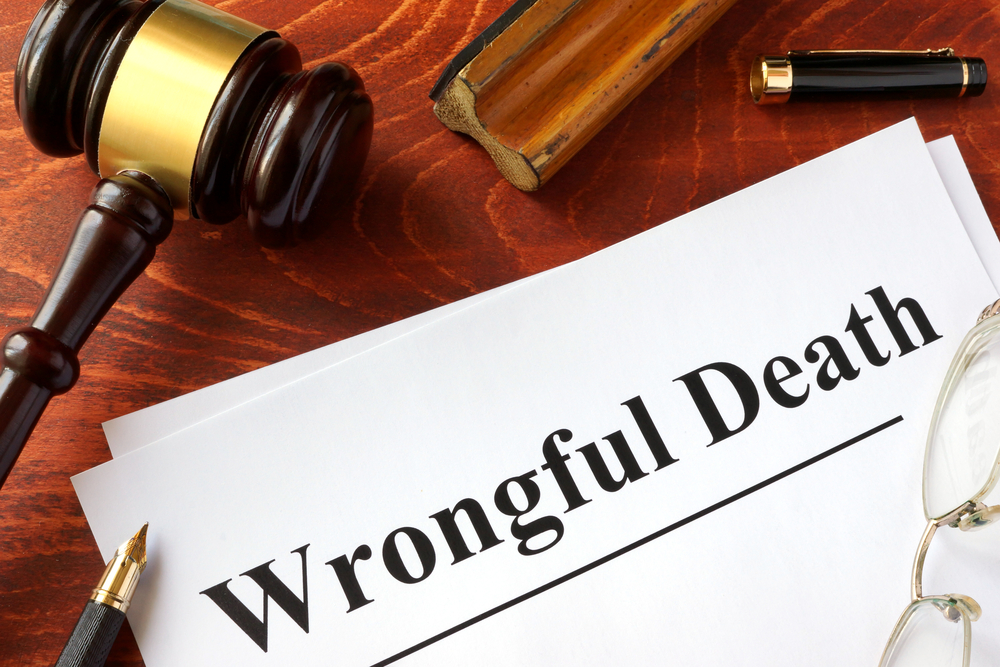What to Do When You’ve Been Injured on the Job
October 29, 2018
By Hayhurst Law
If you have suffered a workplace injury, it can have devastating consequences. You may have severely sprained, strained, or even broken something in a way that will restrict your mobility for the rest of your life. You may no longer be physically capable of doing your job. You may have even lost a limb or extremity. Not to mention the loss of wages, loss of employment, the accumulation of hospital and rehabilitation bills, and a stressful civil lawsuit between you and your employer. Or, maybe, you are pursuing a settlement because of the wrongful death of a loved one at a workplace.
So a piece of equipment at your well pad was not properly inspected or secured, and you have been injured because of it. What now?
The most important part of properly settling a workplace injury is immediately reporting it to your place of employment. You should not be embarrassed or worried that you did something wrong that led to your injury or try to rest it off over the weekend at home. Immediately report it to your superiors, or, if your injury is so severe that you must go to a hospital before visiting your supervisor’s office, have a coworker alert your employer or make the phone call from the hospital.
Not immediately reporting your accident will have many consequences. First, a personal injury lawyer may be more reluctant to help you reach a settlement with your employer. It also will lead to the superiors being unaware of whatever unsafe practice has led to your injury, and may result in more accidents with other employees.
After you have reported your accident to your employer, it is time to get a workplace injury lawyer. Because the personal injury laws vary from state to state, an attorney can help you settle things like workers compensation or a deliberate intent (medical bills and pain and suffering) lawsuit. If you are a trucker or use your personal vehicle for work purposes, your lawyer can help you figure out how you or your vehicle is covered in the event of a car wreck.
It is very important to be honest with both your employer and your lawyer. If you lost consciousness, or your adrenaline tampered with your memory, do not try to estimate, exaggerate, or make things up to fill in the blanks. Do not try to alter the story to remove any fault or blame on you that led to the injury. If an insurance company investigates the accident and finds that you tampered with the integrity of the story, your lawsuit may become null and void and, if you were still planning on working at that job, you would not be anymore.
After your lawsuit has been settled, it is time to face the road to recovery. There were almost three million people injured in nonfatal workplace accidents in 2016; this means that unsafe practices are still too high in American workplaces. Your recovery might include prolonged hospital stays or physical therapy, and you may be feeling resentful towards your employer and superiors if the accident was due to negligence, but you may be able to be a powerful advocate for safer equipment in warehouses, more extensive training programs, and more active attention by superiors to catch potentially harmful issues in the workplace before it’s too late.
What to Do When You’ve Been Injured on the Job
By Hayhurst Law
If you have suffered a workplace injury, it can have devastating consequences. You may have severely sprained, strained, or even broken something in a way that will restrict your mobility for the rest of your life. You may no longer be physically capable of doing your job. You may have even lost a limb or extremity. Not to mention the loss of wages, loss of employment, the accumulation of hospital and rehabilitation bills, and a stressful civil lawsuit between you and your employer. Or, maybe, you are pursuing a settlement because of the wrongful death of a loved one at a workplace.
So a piece of equipment at your well pad was not properly inspected or secured, and you have been injured because of it. What now?
The most important part of properly settling a workplace injury is immediately reporting it to your place of employment. You should not be embarrassed or worried that you did something wrong that led to your injury or try to rest it off over the weekend at home. Immediately report it to your superiors, or, if your injury is so severe that you must go to a hospital before visiting your supervisor’s office, have a coworker alert your employer or make the phone call from the hospital.
Not immediately reporting your accident will have many consequences. First, a personal injury lawyer may be more reluctant to help you reach a settlement with your employer. It also will lead to the superiors being unaware of whatever unsafe practice has led to your injury, and may result in more accidents with other employees.
After you have reported your accident to your employer, it is time to get a workplace injury lawyer. Because the personal injury laws vary from state to state, an attorney can help you settle things like workers compensation or a deliberate intent (medical bills and pain and suffering) lawsuit. If you are a trucker or use your personal vehicle for work purposes, your lawyer can help you figure out how you or your vehicle is covered in the event of a car wreck.
It is very important to be honest with both your employer and your lawyer. If you lost consciousness, or your adrenaline tampered with your memory, do not try to estimate, exaggerate, or make things up to fill in the blanks. Do not try to alter the story to remove any fault or blame on you that led to the injury. If an insurance company investigates the accident and finds that you tampered with the integrity of the story, your lawsuit may become null and void and, if you were still planning on working at that job, you would not be anymore.
After your lawsuit has been settled, it is time to face the road to recovery. There were almost three million people injured in nonfatal workplace accidents in 2016; this means that unsafe practices are still too high in American workplaces. Your recovery might include prolonged hospital stays or physical therapy, and you may be feeling resentful towards your employer and superiors if the accident was due to negligence, but you may be able to be a powerful advocate for safer equipment in warehouses, more extensive training programs, and more active attention by superiors to catch potentially harmful issues in the workplace before it’s too late.
Work Related

Hurt on the Job? Follow These 5 Important Steps
Hurt on the Job? Follow These 5 Important StepsMay 8th, 2018By Hayhurst LawSuffering a workplace injury can be just as...
Wrongful Death

Everything You Need to Know About Wrongful Death Suits
Everything You Need to Know About Wrongful Death Suits September 27, 2018By Hayhurst LawFatal injuries resulting from...
Car Accident

Back to School Means an Increase in Morgantown Car Accidents
Back to School Means an Increase in Morgantown Car AccidentsSeptember 09, 2020By Hayhurst LawNow that school is back...
![Dark-Logo[3]](https://hayhurstlaw.com/wp-content/uploads/2021/07/Dark-Logo3.png)